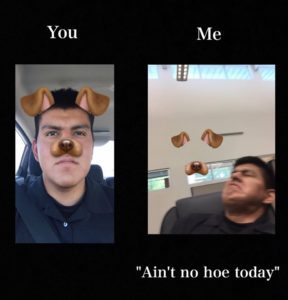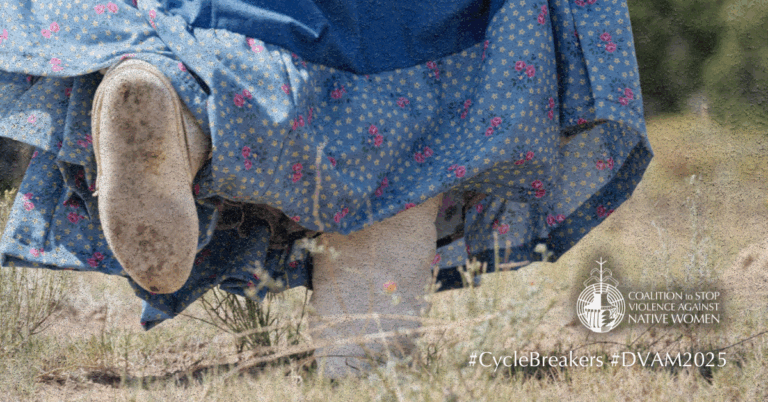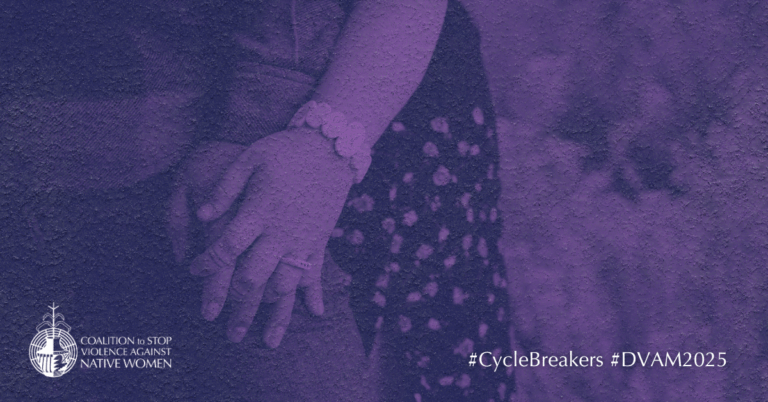By Keioshiah Peter, CSVANW Native Youth Coordinator
In the last few days of 2016, CSVANW was able to attend the 6th Annual Striking Eagle Native American Invitational (SENAI) and Educational Fair to present on Social Media Safety for team members, parents, and coaches. The SENAI event works to build partnerships between tribal schools and the University of New Mexico while also encouraging participants to attend various workshops that focus on college readiness, careers, healthy lifestyles, and overall well-being.
The basketball invitational mirrors the Lakota National Invitational in South Dakota which is in its 40th year of operation. This is the second year that CSVANW has presented at SENAI.
We reached out to the organizers of the event late in the season and thankfully they were able to give us a presentation slot to share our workshop on social media safety. This presentation focuses on how to protect oneself and their privacy online from cyber abuse while also touching up on consent, creating safer environments, and being an up-stander for oneself and others online. Additionally, we were able to work with the participants to figure out how to improve our presentation to make it more engaging.
Overall, the presentation went well and we were able to hold a conversation with the students on social media. We also briefly touched on cyber-abuse which included a conversation on bullying, unhealthy relationships, and catfishing. To my surprise, some of the participants reiterated very sexist comments toward Native women which was fueled by meme’s online. This is when I realized that discourses that target Indigenous use of technology should also reiterate the perpetuation of lateral violence on the internet through intimidation and sexist underlining messages.
In the vastness of the world wide web, there is an ocean of sexist meme’s and racist rhetoric that are shared constantly- adding to the lateral violence andgendered hatred we often see on social media.
 Personally, I enjoy scrolling through social media and looking at meme’s but there are some that take me completely by surprise. This is the side of the internet that we should be talking about and working to educate our young people on so we can continue to smash the heterosexist and heteronormative
Personally, I enjoy scrolling through social media and looking at meme’s but there are some that take me completely by surprise. This is the side of the internet that we should be talking about and working to educate our young people on so we can continue to smash the heterosexist and heteronormative
patriarchy.
Take for example some of the content reposted by @nativememes on Facebook. The first is a meme that includes the main character, Fry, from Futurama with a caption that screams body shaming. The next meme includes two unknown characters holding each other next to a caption that dishonors Indienous women by its use of a specific derogatory term and slut shaming toward our Native mothers.
I’m sure that our Native ancestors did not fight and resist against 500 years of settler colonialism for us to create internet content that disrespects our women and encourages gender violence
Another fine example of how social media has become a platform for sexist comments includes slut shaming of the doggy filter on Snapchat by @Moonie on his Facebook page.
In this meme, @Moonie uses the dog filter to throw gendered shade to those who utilize the cute filter. As  Wendy Syfret in her online article titled “the internet is slut shaming women over snapchat filters” states,“if sending pictures of yourself as a dog to your friends is wrong, we don’t want to be right.”
Wendy Syfret in her online article titled “the internet is slut shaming women over snapchat filters” states,“if sending pictures of yourself as a dog to your friends is wrong, we don’t want to be right.”
When we’re talking about social media safety, we also should be talking about internet accountability to the content that one shares, or reposts, especially when it intends to hurt others.
Body shaming, slut shaming, gender violence, and lateral violence online needs to stop. One question to ask yourself to make sure that you are notreposting or uploading violent content is “can this post marginalize or hurt others?” If so, don’t post it.
And if you see something that perpetuates violence or makes you uncomfortable, call it out.
In a time where we are faced with a sexist, racist, and xenophobic individual (He who shall not be named) who is about to be placed in the highest position of political power, we should all be working towards solidarity and support for our Indigenous women, LGBTQ2S, and young people online. We need to continue to support efforts to educate on healthy relationships so that we can work to end gender violence, online bullying, and sexism online. Social media serve as a platform for many people to communicate, share ideas, and network but it should not be a place where gendered violence occurs.
If you are interested in learning more about social media safety, please contact CSVANW. Be sure to follow us on Facebook, Twitter, Instagram or Snapchat to stay up to date with us!
Related Posts

Running Towards Healing and Justice
By: Ang Gonzales (they) intern at CSVANW Community Voice This Domestic Violence Awareness Month, I…

Our Stories, Our Strength: Voices of Cycle Breakers
Storytelling has always been medicine. For generations, our stories have carried the wisdom of our…

10 Years of Healing in Motion
The Story of CSVANW’s I Will Run for Them 5K Every October, during Domestic Violence…
